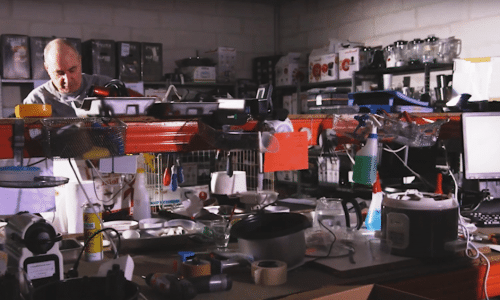Household WEEE
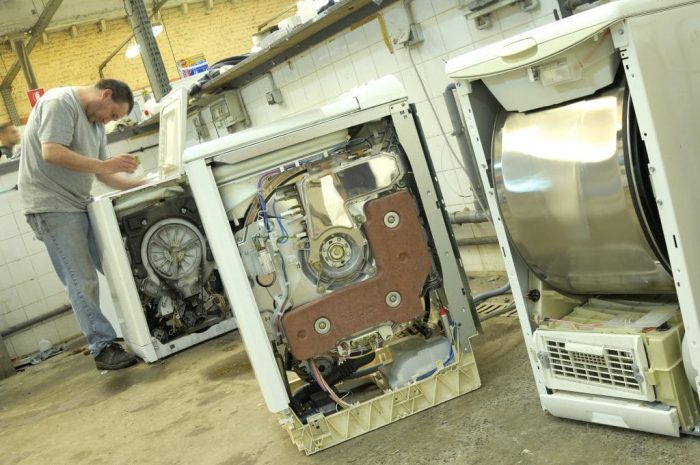
 Social and solidarity economy (SSE)
Social and solidarity economy (SSE)
The Emmaüs France network reuses electrical and electronic equipment donated by private individuals. The Envie network enables the large household appliances collected by retailers to be reused.
In 2019, nearly 574,000 appliances were reused after repair. i.e. a 30% increase compared to 2018.
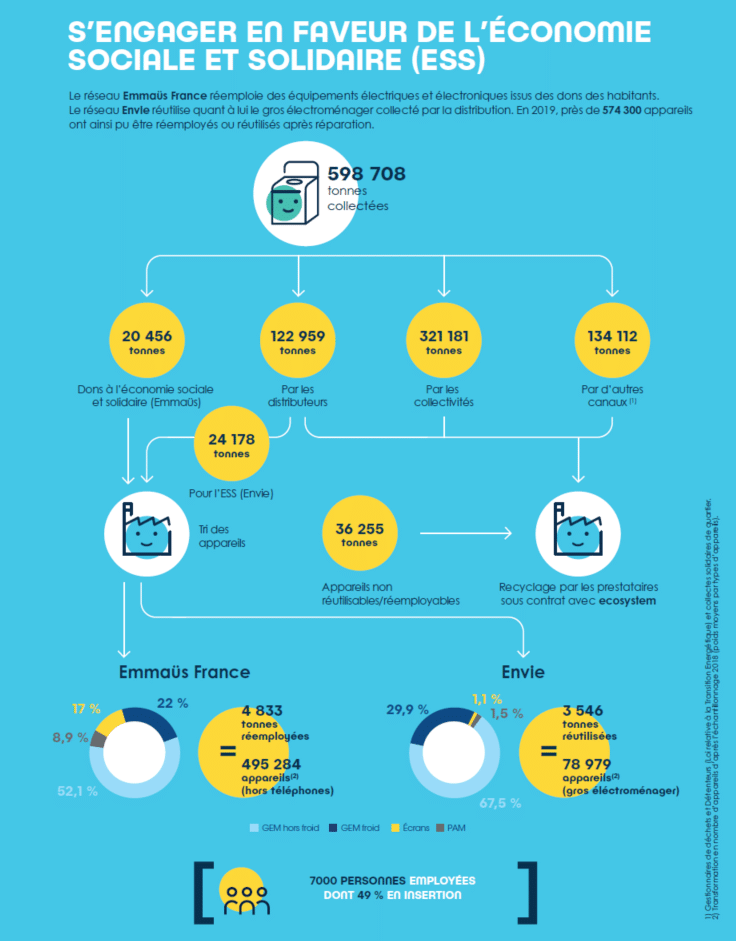
The “Je donne mon téléphone” (“Give my telephone”) operation
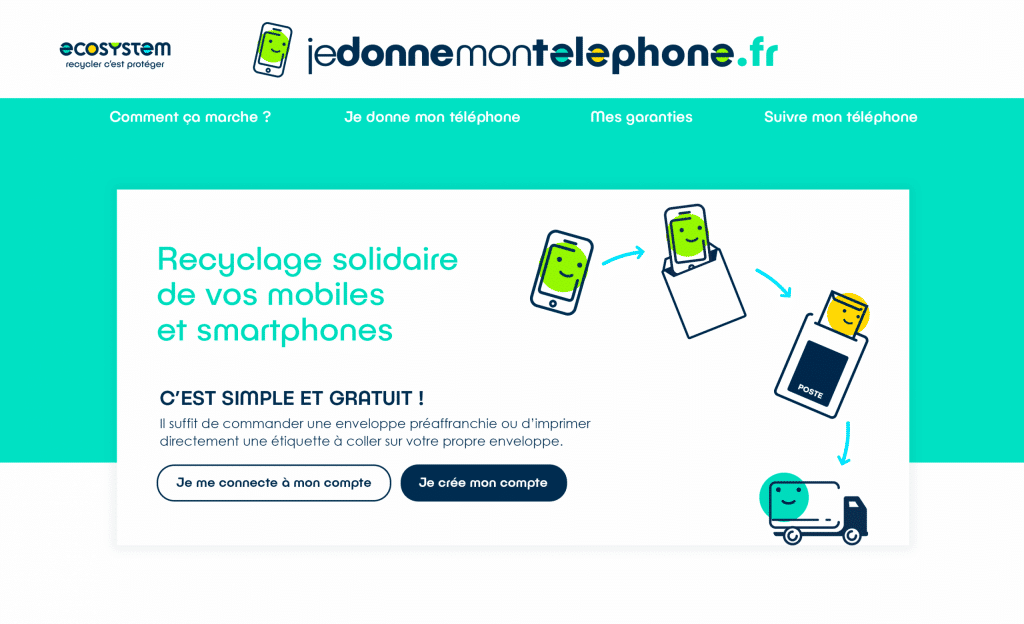
In October 2019 ecosystem launched the “Je donne mon téléphone” operation in order to collect unused mobile telephones that could be reused. Indeed, it is estimated that between 54 and 113 million telephones lay dormant in drawers. All the telephones collected are sent to Ateliers du Bocage, an inclusive employment company in the Emmaüs network, specialised in reconditioning mobile telephones. In the framework of its social value project, the Ateliers du Bocage employs 150 people some of whom are under inclusive employment contracts. The system is simple and free, ecosystem organises all the stages in managing these telephones, from the request for a pre-paid label or envelope, right up to its treatment.
Furthermore, ecosystem and the Ateliers du Bocage have signed a “reuse charter” for reconditioning mobile telephones. This guarantees that any personal data that the mobile telephones contain will be wiped clean, in the strictest confidence. The charter guarantees the quality of the processes implemented to recondition telephones (test, deblocking, cleaning, etc.).
The platform is accessible via the following link: https://www.jedonnemontelephone.fr/
Neighbourhood solidarity collection operations in partnership with Emmaüs

ecosystem and Emmaüs France regularly organise neighbourhood solidarity collection operations, temporary collection points in order to recover electrical and electronic appliances. These operations take place on a Saturday morning either on a monthly or two monthly basis. They take place in Lyon, Toulon as well as in the Ile de France region in order to make it easier to donate. All electrical appliances recovered are sorted, cleaned and reused by the Social and solidarity economy (SSE) or failing this, by ecosystem.
In 2019, 342 neighbourhood collection operations took place in France and nearly 30,000 items of EEE were collected.
A spare parts sector with Envie
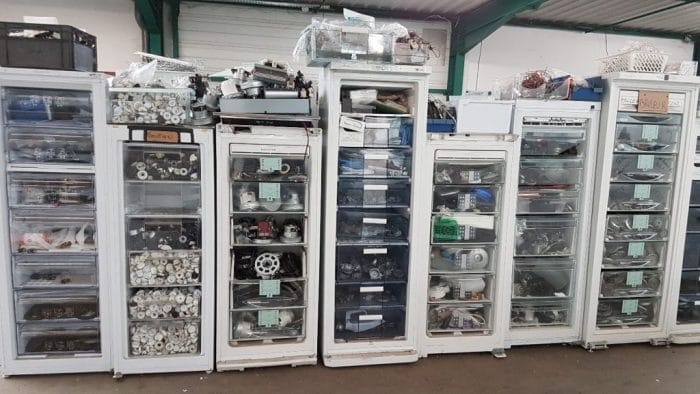
A pilot project on the collection and management of spare parts coming from reuse (RSP) was implemented at 3 ENVIE ERG sites (Strasbourg, Lille and Nantes) under the coordination of the Federation Envie. The results of this pilot are encouraging and highlight the need to use an existing network and to federate operations at a national level.
Renegotiation of national Envie and Emmanüs agreements
ecosystem has implemented new measures, in agreement with Emmaüs and Envie, in order to improve traceability (weighing with certified scales, input deadline, consistency with reuse yield), and set up continuous measures such as redeployment reporting, the redefinition of average calculations, redeployment reference persons, etc.
A genuine improvement in communications between parties is desired and for this to be achieved a guide on terms has been established and the number of SteerCom meetings with ecosystem have been increased. The support fee levels have also been reviewed in order to take into account the economic effect and highlight collection that enables reuse to be conserved.
The Darty Mitry Mory platform example
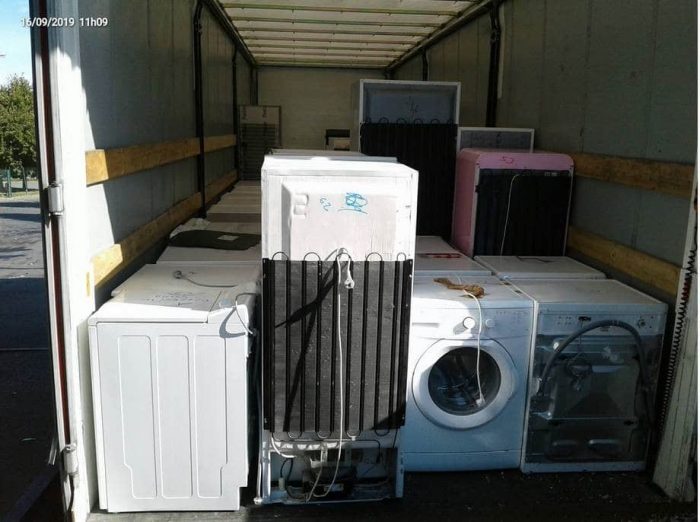
The Darty Mitry Mory platform in the Ile de France region, is an example of sustainable collection enabling SEE organisations to maintain the collection of good quality streams and repair and reuse appliances more easily. ecosystem supports this finer sorting principle. Retailers who accept to sort their appliances that they receive in the “1 for 1” measures (exchange of a new appliance for a used one) will receive funding.
This system has not only enabled Envie (e.g. Envie Orléans Loiret, Envie Touraine) to recover appliances that are clearly of a higher that average quality, and therefore significantly increase their reuse rate (higher than 20%), but also to optimise journeys. Indeed, as the streams sent to Envie are of very good quality, the quantity of appliances that cannot be reuse is decreasing as have the appliances sent for treatment, which limits the return journeys between Envie platforms and treatment centres.
Creation of new sites
In 2019, the Envie ERG Charente Maritime organisation (formerly Blan’cass) was created. Future new creations: Envie Brest, Envie Paris as well as Envie La Roche sur Yon.
Reuse: the European reuse standard
Since 2014 ecosystem has been working with CENELEC in establishing a European standard on the reuse of electrical appliances (“Re-use” EN-50614). Its purpose is to streamline European preparation for reuse practices that comply with product and waste regulations as well as EPR. Since the publication of this standard that became the CENELEC standard in 2019, an a French standard in 2020, ecosystem would like to assist SEE parties towards a target quality level, a vector for making reuse activities more professional.
An exemplary nature is already in place at ecosystem and Envie in terms of traceability, warranty, functionalities and take-back to the sector and has proven its worth. The project’s challenges are now: traceability, stream weighing, the unique identification of each appliance and the electrical safety of every operator and user.
ecosystem is participating in works on the repairability index
Within the context of the French law on the Fight Against Waste and on the Circular Economy, ecosystem has participated in works on a repairablity index. The aim of this index is to encourage consumers to repair their broken objects before they buy a new one. The index allows consumers to obtain information and familiarise themselves with this repairability concept so that a habit of repairing becomes generalised. In the first instance, four objects will be the focus of this index as from 1 January 2021: washing-machines, televisions, computers and mobile telephones.
Furthermore, to also encourage manufacturers to design appliances that can be repaired, this index will integrate financial aspects: indeed, those marketing appliances that have a good index value will pay a lower eco- fee.



